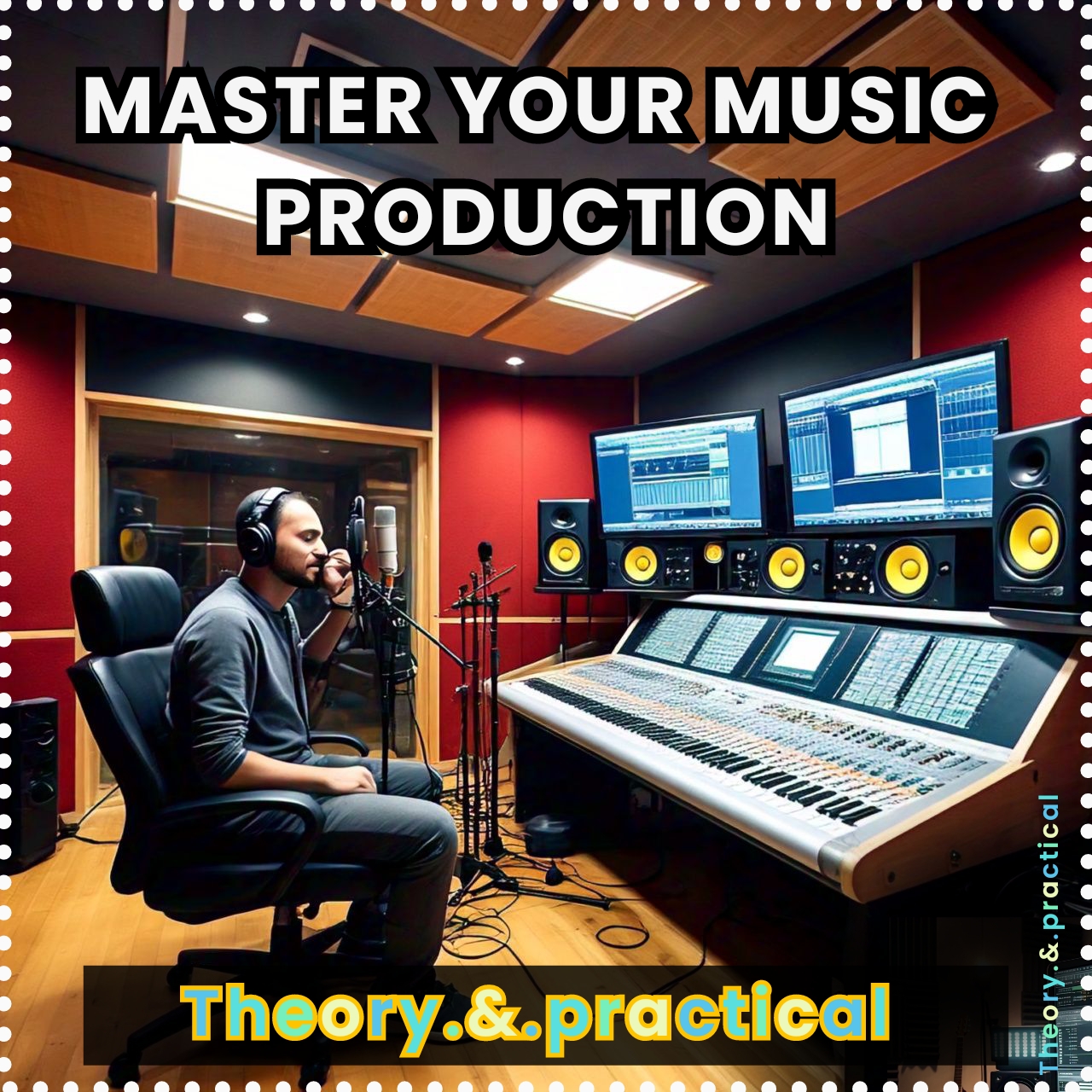A comprehensive guide to music production at the Bachelor's level! Here's a detailed outline covering the key concepts, techniques, and skills required for a music producer:
Fundamentals of Music Production
1. *Music Theory*: Chord progressions, scales, modes, rhythm, and harmony.
2. *Audio Fundamentals*: Sound waves, frequency, amplitude, and acoustics.
3. *DAW Overview*: Introduction to digital audio workstations (DAWs) like Ableton, FL Studio, or Logic.
Recording and Editing
1. *Microphone Techniques*: Selection, placement, and usage of microphones.
2. *Instrument Recording*: Recording drums, bass, guitar, keyboards, and other instruments.
3. *Vocal Recording*: Recording and editing vocals, including comping and harmonizing.
4. *Audio Editing*: Basic editing techniques, including cutting, copying, and pasting.
Music Production Techniques
1. *Beat Production*: Creating drum patterns, basslines, and melodies.
2. *Synthesis and Sound Design*: Basic synthesis techniques and sound design principles.
3. *Sampling and Sampling Techniques*: Using samples in music production.
4. *Arrangement and Structure*: Creating intro-verse-chorus-bridge-outro structures.
Mixing and Mastering
1. *Mixing Fundamentals*: Balancing levels, panning, and basic effects processing.
2. *EQ and Compression*: Using EQ and compression to shape and control sound.
3. *Reverb and Delay*: Using spatial effects to create depth and distance.
4. *Mastering Fundamentals*: Preparing tracks for distribution and playback.
Music Production Software
1. *DAW Operation*: Setting up and navigating a DAW.
2. *Plugin and Effect Processing*: Using plugins and effects to process audio.
3. *MIDI Editing*: Editing and manipulating MIDI data.
Music Business and Industry
1. *Music Industry Overview*: Understanding the music industry, including record labels, publishing, and licensing.
2. *Copyright and Royalties*: Understanding copyright law and royalty payments.
3. *Music Marketing and Promotion*: Basic music marketing and promotion techniques.
Advanced Music Production Techniques
1. *Advanced Synthesis and Sound Design*: Using advanced synthesis techniques and sound design principles.
2. *Advanced Mixing and Mastering*: Using advanced mixing and mastering techniques, including multiband compression and stereo imaging.
3. *Music Production for Visual Media*: Creating music for film, TV, and video games.
By mastering these concepts, techniques, and skills, you'll be well-equipped to succeed as a music producer!
Do you have any specific questions about music production at the Bachelor's level, Search for -Mokoz Beatz?



Comments ()